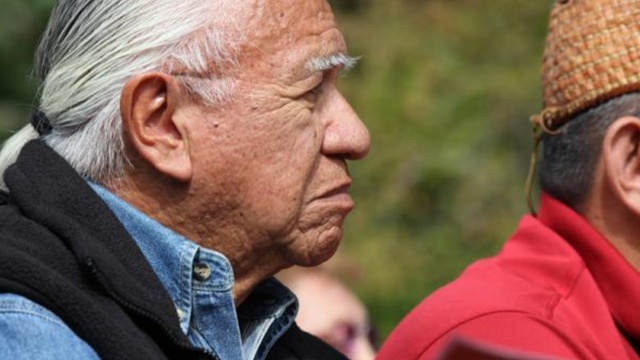
Associated Press
SHELTON, Wash. (AP) — Thousands of people attended a funeral service for Billy Frank Jr., the Nisqually tribal elder who fought for Indian fishing rights in Washington state and was an advocate for salmon habitat.
Frank died May 5. He was 83.
Frank figured prominently in Northwest fish-in demonstrations of the 1960s and 1970s that eventually led to sweeping changes in how Washington manages salmon and other fish.
Among those at the service Sunday at the Little Creek Casino Resort’s Event Center were Gov. Jay Inslee and Sens. Patty Murray and Maria Cantwell. Inslee said Frank was a state and national leader and that when he spoke, “people listened.”
About 6,000 people attended the service, said Little Creek spokesman Greg Fritz. Crowds also watched the service on jumbo screens from a large tent and other areas of the resort.
The service featured traditional Indian Shaker Church prayers, a presentation of a folded U.S. flag for the family — Frank had served in the Marine Corps — and remarks from more than 20 tribal leaders and elected officials.
“I often said that no one cared more about salmon and the planet Earth than our friend Billy,” said former U.S. Rep. Norm Dicks.
Cantwell described him as “a legend that has walked among us,” comparing his legacy to those of Cesar Chavez, Martin Luther King Jr. and Nelson Mandela.
Frank was arrested more than 50 times for “illegal fishing” during the protests that came to be known as the fish wars. Patterned after the sit-ins of the civil rights movement, the campaign was part of larger nationwide movement in the 1960s for American Indian rights.
In 1992, Frank was awarded the Albert Schweitzer Prize for Humanitarianism, whose winners include former President Jimmy Carter and Desmond Tutu.
Swinomish tribal chairman Brian Cladoosby, president of the National Congress of American Indians, described Frank as a forceful teacher and a truth teller.
“Billy treated everyone with respect, even when we failed to live up to his expectations,” Cladoosby said.
